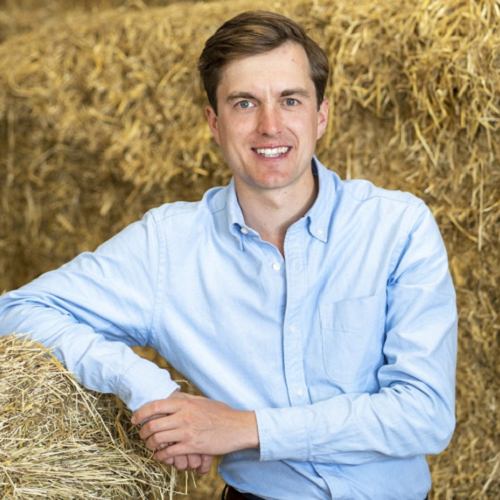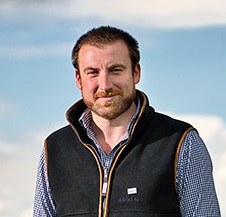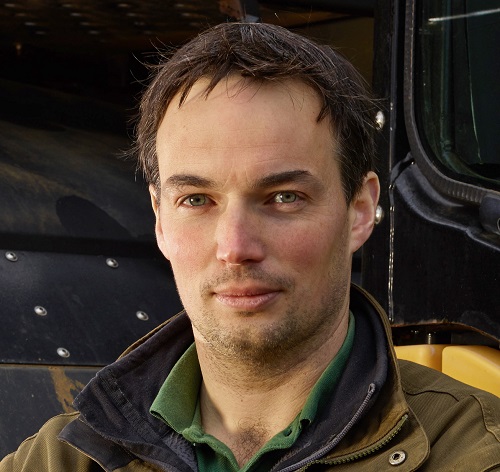

Landwards Conference 2024
WHAT WE WANT FROM AGRICULTURAL ENGINEERS
Wednesday 6 November
This year’s prestigious Institution of Agricultural Engineers Conference delved into the crucial question: How is the world going to design products and create technologies to meet the challenges demanded by the food chain? Population growth, climate change, renewable energy, sustainable food production, all things we hear all around us every day. The challenges are clear, but it’s evident that working in silos is not going to achieve the results we need. These topics are inherently linked to each other and will require a collaborative systems based approach to solve.
Our conference this year did not focus on the challenges, but on how we can achieve the solutions. By encouraging the thought process between the different stakeholders, we highlighted what engineers working in agriculture need to focus on for the future. Representatives presented their requirements from UK and EU policy, food processing and retail, and livestock and crop production. Finally, a farmer that uses technology shared the challenges farmers face when integrating technology into their businesses, so they can achieve the things politicians, the food chain, and consumers are asking for.
The event culminated in an excellent panel discussion, where our speakers answered questions from the audience and gave our audience a chance to share their views.
“To answer this question, we assembled stakeholders from across the food chain to present the challenges they are facing and ask what they need from agricultural engineers,” said Dr Mark Moore, Director of Government Affairs at AGCO, IAgrE President and the conference convenor.
“This year our conference broke the mould by not tackling a technical subject. As agricultural engineers we are happy talking within our own community and are very aware of the challenges the agricultural industry faces but we have to start talking to people outside of our sector to ensure a joined-up approach to the issues the world faces.”
Read more about the speakers below and their presentations in PDF form are linked. We are awaiting the recordings of the Conference and these will be shared here and on our YouTube page in due course. The programme is available here and the Delegate Pack may be found here.
OUR SPEAKERS
Setting the Scene
Kate Halliwell, CSO, Food & Drink Federation

Kate Halliwell is the Food and Drink Federation’s Chief Scientific Officer. Kate is accountable for the FDF’s food safety, food law and labelling, and diet and health policy briefs.
The role involves extensive liaison with food and drink manufacturing companies to develop cross-industry policy positions and responding to scientific consultations. Previously Kate led the FDF’s diet and health policy work, and before that worked for the Department of Health and the Food Standards Agency on a range of nutrition and legislation policies. Kate Chairs the IFST’s Special Interest Group for Food Science and Nutrition and is a registered nutritionist. Kate's presentation may be found here.
Political View
Jelte Wiersma, Secretary General, CEMA

Jelte Wiersma is the Secretary General of CEMA – the European Association representing the Agricultural Machinery manufacturers in Europe. CEMA’s members are 11 National Associations and the biggest seven tractor manufacturers in Europe.
Jelte, a Dutch national, from 2014 he worked as EU-correspondent for the leading Dutch weekly, covering European affairs, including agriculture, and agri-food-related issues. He took on his current role in 2022. He is one of the founding members of the Holland House in Brussels. A PDF of Jelte's presentation is here.
Food Retailer View
Jake Pickering, Senior Agricultural Manager, Waitrose & Partners

Jake is currently the Senior Manager for Agriculture at Waitrose where he leads the team that is responsible for setting and implementing the Waitrose agriculture strategy. His responsibility stretches across the livestock, dairy, fresh produce and horticulture supply chains producing Waitrose products.
Jake's presentation slides may be found here.
OUR SPEAKERS
Agronomist View
Kieran Walsh, Agronomist, Grounded Agvice

Kieran, has a practical background in farming, working on farms from a young age, then moving into farm management before a career move into agronomy in 2015. Starting as a distribution agronomist for 6 years, before going independent in 2019, as a regional agronomist for a large farming company.
Kieran is now co-founder and director of Grounded Agvice, and provides tailored independent agronomic advice addressing customer issues by seeking system-based approaches outside the normal parameters of crop agronomy. Their innovative approach supports farms and land owners across the south of the UK.
See Kieran's slides here.
Livestock Sector View
Claire Morgan-Davies, Livestock Scientist, SRUC
Claire is a Livestock Systems Scientist, who, originally from Burgundy, who graduated from France as an ‘Ingénieur en Agriculture’ from UniLaSalle Beauvais in 1995. She joined the James Hutton Institute in Aberdeen, worked as a sheep and cattle grazing modeller, and as the administrator of a European Network on animal fine fibres. At the same time gaining an MSc in Land Resource Management at Cranfield University.
She joined the Hill and Mountain Research Centre at SRUC in 1999, looking at evaluating the introduction of a native woodland on a hillside, whilst keeping sheep production. This project included modelling work and participatory research with hill farmers.
Claire then focussed on livestock systems comparison and multi-disciplinary research. In 2006 she embarked on a part time PhD at the University of Edinburgh, whilst carrying on as a research scientist at the Hill and Mountain Research Centre. Her PhD studies focused on the change in the EU Common Agricultural Policy of decoupling support for livestock, and on how it affected husbandry practices and land use in the Scottish hills.
She developed an interest in smart farming for sheep systems, and in how technology could help hill farmers to be more efficient. Her research focused on sheep systems and Precision Livestock Farming, as well as on-farm labour. Claire has published more than 70 journal and conference articles, as well as participated in many outreach events with farmers and stakeholders, both in the UK and abroad. Claire's presentation slides are here.
Farmers View
James Price, Perdiswell Farm, Oxfordshire

James is an arable farmer from the edge of the Cotswolds who is pursuing his goal to both improve the quality of his soils and be more precise in every input. This has led to a successful and profitable business and also industry recognition with roles at the AHDB and NFU in the past. He farms 3600ac in a family partnership with a mixture of owned, tenanted and contract farmed land and he worked alongside Clive Blacker and Yara with their N sensor for 5 years covering all aspects of precision farming with an emphasis on nutrient management.
He is in a unique position of being able to practise what he preaches and has proved many times over the benefits of precision farming. His attention to detail in all aspects of arable farming has led to a steady increase in yields despite the limitations of drought prone Cotswold Brash Soils. At the same time he is ranked in the top 5% of farmers for low growing costs and uses nearly half the average amount of diesel per ha despite having ploughing in the rotation. Recent investment has seen a switch to 12m controlled traffic and the use of a camera guided hoe is being investigated. His passion for improving his soils has led to the re-introduction of livestock onto the farm with both sheep and cattle during the winter. These, combined with cover crops and organic manures, have led to him being at the forefront of regenerative farming.
You can read James' slides here.
career - your passport to professionalism...
If you have a query about events, click here...



